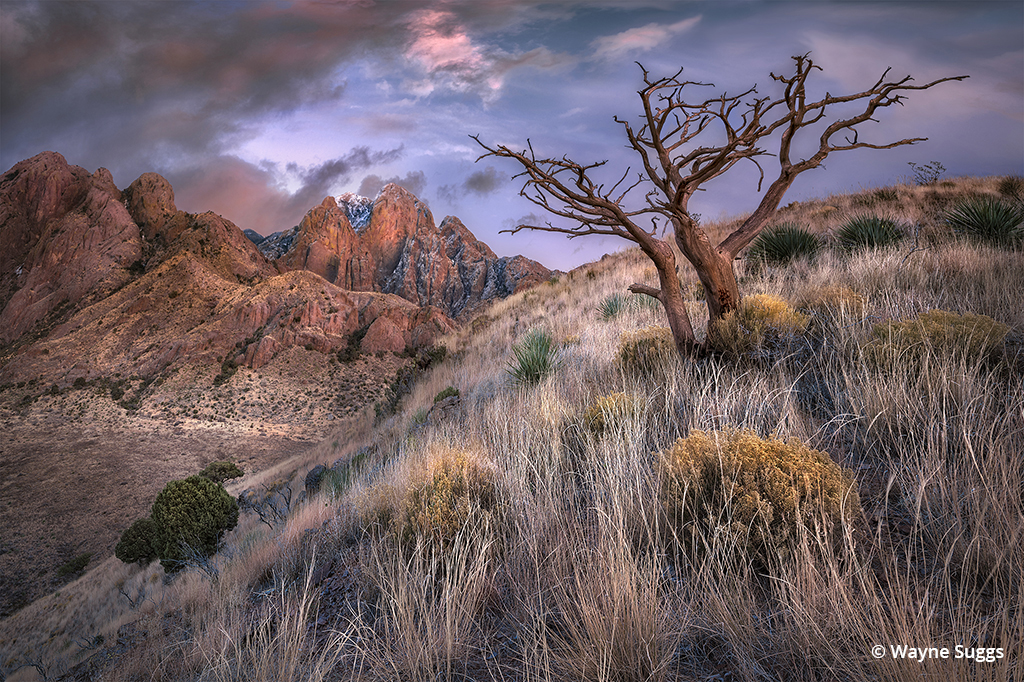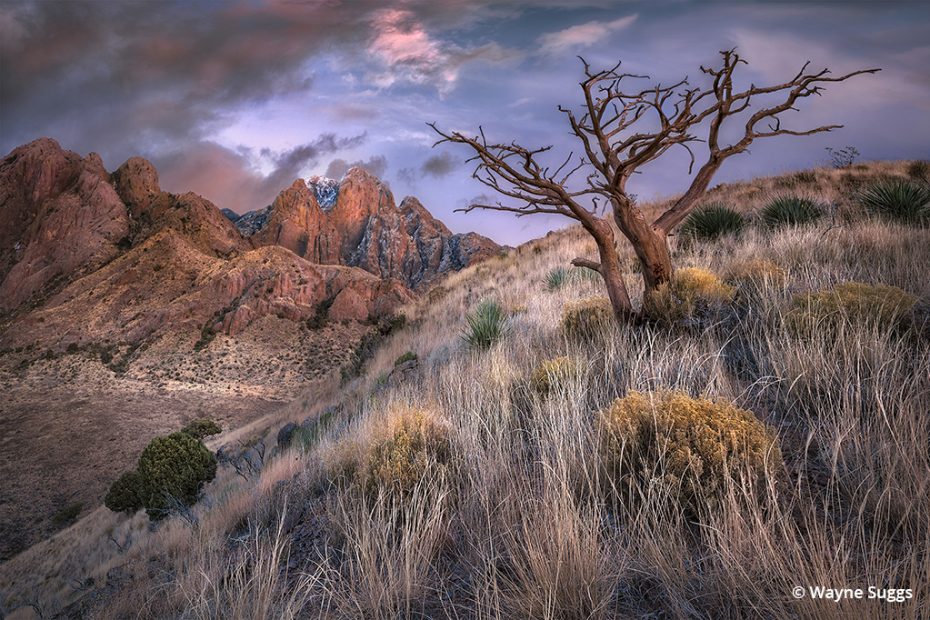
The Organ Mountains-Desert Peaks National Monument is located in the Chihuahuan Desert of Southern New Mexico. This series of mountain ranges won its designation as a monument in 2014. The monument encompasses nearly 500,000 acres and completely surrounds the city of Las Cruces, with a population of just over 100,000. One can find solitude literally minutes away in any direction. The elevation ranges from 3,900 to 9,000 feet above sea level with a vast variation in vegetation, from creosote to cacti to ponderosa pine. Most photographers are drawn to the dramatic spires of the Organ Mountains, but there’s so much more to explore in this large and diverse national monument.
Weather
Weather here can vary greatly. On a winter’s day, it can be in the low teens in the morning, while that afternoon could find you in a T-shirt in 70-degree weather. In winter, you can usually find a light dusting of snow and the occasional snowstorm that leaves a blanket of up to a foot (and sometimes more). It rarely lasts more than a day or two. If rains happen to fall in January and early February, you’re rewarded with a profuse blanket of Mexican poppies in the month of March.
Summers can be hot, and temperatures can climb into the 100s. The monsoon season usually starts in mid-July. Afternoons will bring billowy thunderheads and skies filled with virga and vividly colored sunsets. Under heavy storms, lightning will put on a spectacular display against the backdrop of the mountain peaks.
Photo Experience At Organ Mountains-Desert Peaks National Monument
With yellow blooms still on the turpentine bush, it was unusual to have snow already on the Organs. The grass was tall from a heavy monsoonal flow. On this particular fall afternoon, I decided to hike up an unnamed mountain to photograph one of the many dead junipers made into ghost trees by a fire 10 years prior. I found my composition and waited for the harsh light to disappear, and as the clouds began to take on color, I took my photograph. With a series of focus-stacked images, I was able to achieve sharpness throughout the composition.
These mountains are rugged, and some of the best photography to be had is obtained by hiking. Don’t forget to bring plenty of water and a headlamp for the hike out.
Best Times To Visit
Wildflowers are completely dependent on rainfall. March may have poppies, but a constant source of color can be found from early spring to late summer in the various cacti blooms. Especially profuse starting in early April is the claret cup cactus. Its deep crimson blossoms dot the landscape. Various cacti continue throughout the summer and end with the fishhook barrel cactus that can be found blooming in early August. If monsoonal flows bring heavy rains, the desert comes alive with wildflowers from August into October. Typical winter days find mild temperatures, which makes for great hiking weather.
Contact: Bureau of Land Management, blm.gov/visit/omdp
